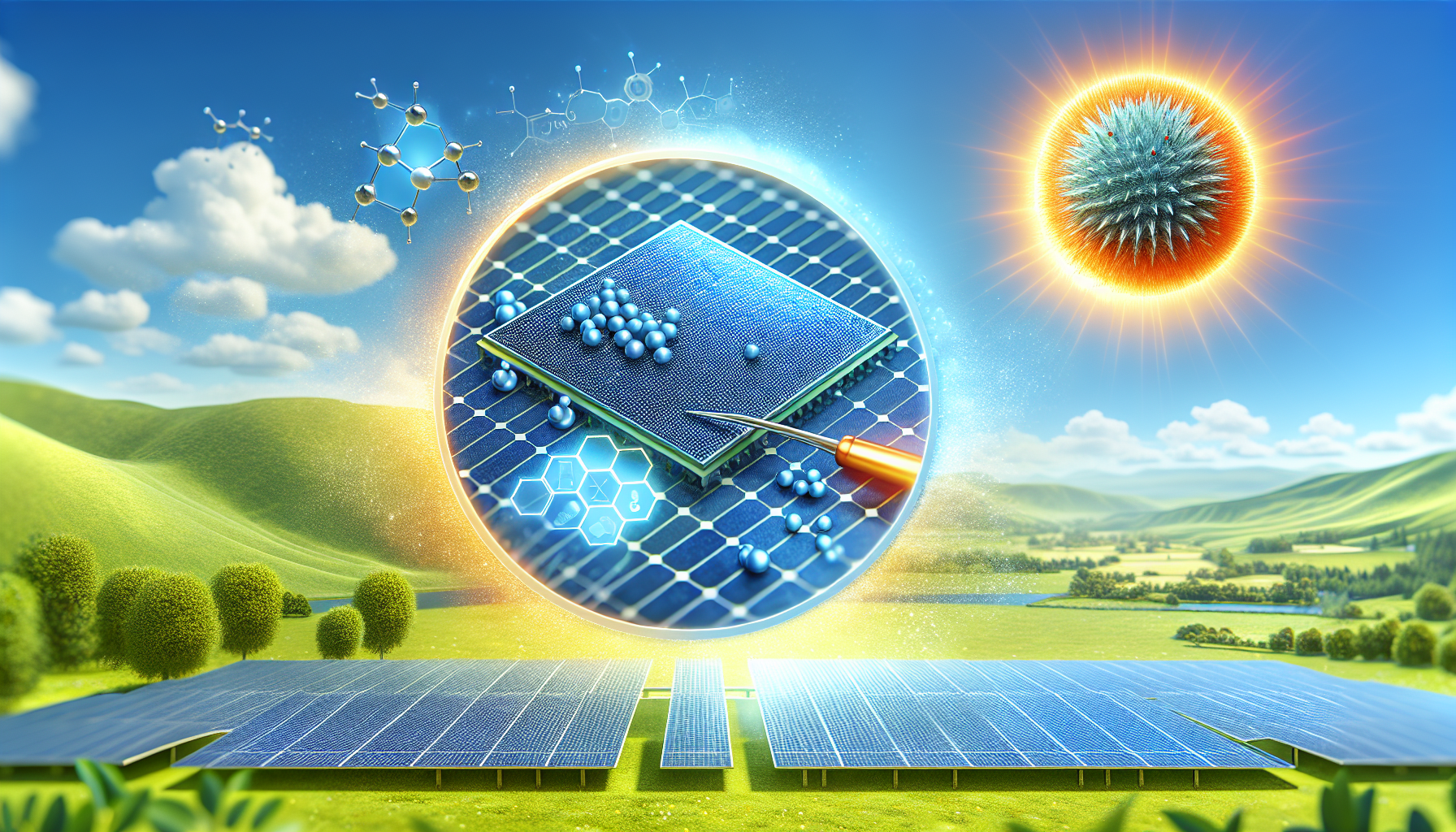Nanotechnology, often perceived as the science of the minuscule, is revolutionizing the way we approach sustainable energy solutions. By manipulating materials at the molecular or atomic level, nanotechnology is enhancing the efficiency and effectiveness of renewable energy technologies, aiming to make sustainable energy sources more viable and widespread.
One of the most promising applications of nanotechnology is in the development of next-generation solar cells. Traditional silicon-based solar panels are limited by high production costs and efficiency caps. Nanotechnology offers the possibility of creating solar cells that not only are significantly more efficient but also more cost-effective. For instance, quantum dots and perovskite materials, which are nano-sized semiconductor particles, have shown exceptional promise in improving solar cell efficiencies. These materials can be synthesized to absorb more sunlight and convert it into electricity with greater efficiency than traditional solar panels. Moreover, they're potentially cheaper to produce and can be applied in flexible forms, expanding the horizons of solar technology applications, from window coatings to portable devices.
Beyond solar cells, nanotechnology is also making strides in energy storage solutions. Batteries and supercapacitors, critical components of renewable energy systems, are benefitting from the advancements in nanomaterials. In lithium-ion batteries, nanotechnology is utilized to enhance the performance of electrodes, which can lead to faster charging times and increased energy densities. This capability is crucial to supporting the intermittency of renewable energy sources like wind and solar, by ensuring that the energy they produce can be efficiently stored and used when needed. Additionally, developing more durable and safer batteries through the innovation of nanomaterials can significantly extend the life of energy storage systems, reducing the environmental impact associated with battery disposal and replacement.
Another fascinating arena where nanotechnology is making an impact is in the field of catalysis, pivotal for energy conversion processes. Nano-catalysts can play a transformative role in hydrogen production and fuel cells, offering a cleaner and more efficient means of producing energy. The ability of these catalysts to operate at lower temperatures and pressures not only reduces energy consumption but also lowers costs, making hydrogen an increasingly feasible sustainable fuel option.
The role of nanotechnology in sustainable energy isn't without its challenges. Cost of production, scalability of nanomaterial manufacturing processes, and addressing health and environmental safety are critical hurdles that researchers are working to overcome. Nevertheless, the potential benefits of integrating nanotechnology into renewable energy systems are profound.
In the quest for a sustainable future, the convergence of nanotechnology and renewable energy offers exciting possibilities. By improving the efficiency and accessibility of renewable energy technologies, nanotechnology not only helps reduce reliance on fossil fuels but also paves the way for a greener, cleaner planet. As researchers continue to explore and innovate at the nanoscale, we are likely to see even more ground-breaking developments that will enhance our energy infrastructure and contribute to a more sustainable world.
